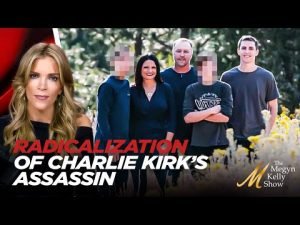In a dramatic twist that has many in Washington buzzing, the Pentagon has found itself at odds with the Washington Post over an article that has left officials scratching their heads in disbelief. The controversial piece allegedly included sensitive information about Defense Secretary Pete Hegseth, as well as details about his family’s whereabouts and security arrangements. This has raised serious concerns about the safety of not just Secretary Hegseth, but also his children and other loved ones.
Pentagon press secretary Kingsley Wilson took to the airwaves to express his outrage over what he described as a national security threat. His passionate defense of Secretary Hegseth echoed around the studio as he pointed out that the article did more than just report on a public figure; it exposed his family to potential harm. In a world where tensions are already high—what with the recent surge in hostility against federal agents and global threats—it seems particularly reckless for the media to publish such sensitive details that could put lives in jeopardy.
According to Wilson and others at the Pentagon, the Washington Post was approached and asked to reconsider running the sensitive details. However, the publication went ahead and published the article without revising their content, prompting speculation about their journalistic ethics. With assassination attempts on high-profile officials becoming distressingly common, one would think that responsible reporting would take precedence over sensationalism.
One can’t help but wonder about the legal ramifications of this alleged breach of decency in journalism. Representative Anna Paulina Luna has called for an investigation by the FBI, which certainly adds another layer to an already complex situation. It’s truly alarming that the free press—a cornerstone of democracy—could be used as a tool that endangers national officials and their families. What would the founding fathers say about this sort of conduct? They might suggest a good old-fashioned debate, but in modern times, potential investigations seem to be the order of the day.
As the Pentagon mulls over what actions to take against the Washington Post, one piece of the puzzle remains clear: accountability in media is essential for not only responsible journalism but also for national security. Should they find it suitable, the Pentagon may have to reconsider how it engages with outlets that operate without sufficient regard for the safety of public figures and their families. If the Washington Post continues down this controversial path, it could find itself on the outside looking in, much like how certain news organizations have treated conservative voices in recent years.
While the dust settles on this confrontation, one thing remains certain: being in the spotlight comes with both perks and perils. As society navigates the fine line between freedom of the press and the responsibility that comes with it, the Pentagon and its officials will undoubtedly be reassessing how they communicate with the media. For those who believe in a country that stands strong and united, there is hope that the truth will shine brightly amidst the shadows of sensationalism.







